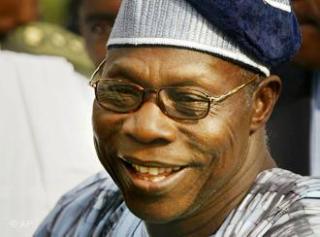South Sudanese warring factions committed war crimes: AU report
October 27, 2014 (JUBA/ADDIS ABABA) – The two warring factions involved in the South Sudanese conflict committed war crimes in the country’s capital, Juba, Bor, Bentiu and Malakal towns, the African Union Commission of Inquiry on South Sudan (AUCISS) observed in its report.

“These attacks resulted in massive killings in and around Juba. The people killed were either found during the house to house search or captured on roadblocks,” partly reads the 318-page report also obtained by the Sudan Tribune.
The commission also said there are reasonable grounds to believe war crimes of rape and torture were committed against civilians in and around Juba, citing evidences that point to state security involvement.
“The evidence collected also suggests that war crime of forced enlisting of children in the army were committed,” the five member commission noted.
MALAKAL KILLINGS
According to the commission of inquiry findings, war crimes were believed to have been committed by government soldiers in Malakal Teaching Hospital through the killings of civilians by some of the soldiers within the South Sudanese military (SPLA).
“The civilians killed were Nuers who had sought shelter at the hospital at night. About six Nuers were killed on diverse dates between 22nd January and 17th February 2014,” it said.
“Some others men women and children were selected, gathered and taken to the river where they were killed”, the report adds.
Government soldiers, it further observed, were involved in the killings in Hay Saha, a neighbourhood in Malakal town, where at least 3 civilians not participating in combats were killed.
“After Malakal was captured by rebels on February 18, 2014 there were killings of civilians of Shiluk ethnicity committed by the rebels at Malakal Hospital. Around 35 people were killed,” it noted.
There are also various accounts and testimonies on killings said to have been conducted by state security agents in the Juba, Bentiu and Bor towns.
However, the five-member commission tasked to investigate the human rights violations and other abuses committed during the armed conflict in South Sudan equally attributed war crimes allegedly committed to the armed opposition (SPLA/IO) and the white army forces allied to ex-vice president, Riek Machar in Bor.
Former Nigerian president, Olusugen Obasanjo led the five-member commission of inquiry.
The commission further considers that there are reasonable grounds to believe that war crimes in relation to massive and indiscriminate attacks against civilian property were carried out in Bor town, partly read the report.
“Visible evidence of torched non-military objectives like houses, market place, administration houses, hospital, form the basis to believe that these crimes were committed,” it further said.
NO GENOCIDE
Meanwhile, commission said there were reasonable grounds to believe that no crimes of genocide were committed during the mid-December 2013 conflict despite the seeming ethnic nature and dimension the South Sudanese war.
It however concluded that some of the serious violations of human rights could amount to crimes against humanity were committed during the conflict and that further investigations be done to identify those responsible.
PRESIDENTIAL POWERS
Meanwhile, the commission found that the Transitional Constitution of South Sudan gives the presidency too much power amidst a weak institutions and a gap between the judiciary, legislature and the executive. As such, it noted, the president’s power to remove some state officials, often without proper controls, was one cause of instability.
“The Commission recommends that the future Constitution should establish a well-balanced system of separation of powers with adequate checks and balances,” it said.
This, the report further added, should be achieved through empowering and strengthening the capacity of the legislatures at both levels of government; subjecting major executive appointments to legislative approval; strengthening the judiciary (ensuring structural and financial independence from the political branches) and adherence to separation of powers, cultivating a culture of respect for judicial independence and rule of law.
The commission of inquiry has, however, recommended that the appointment and removal of the country’s vice president be subjected to the approval of the legislature.
(ST)
